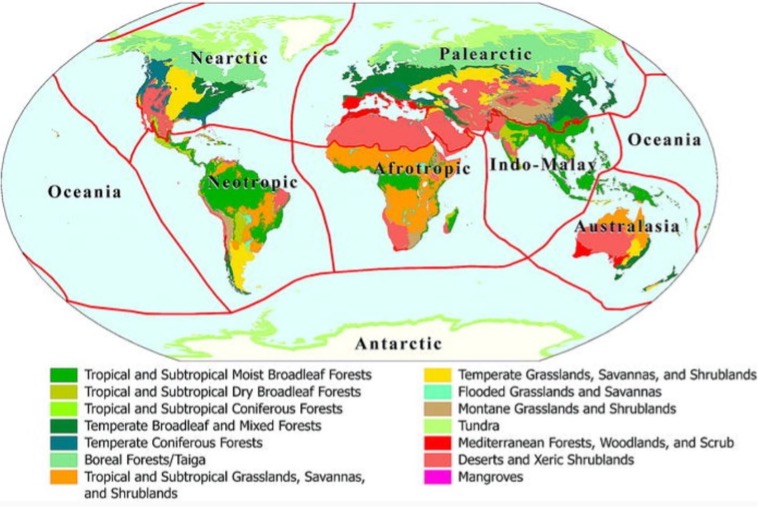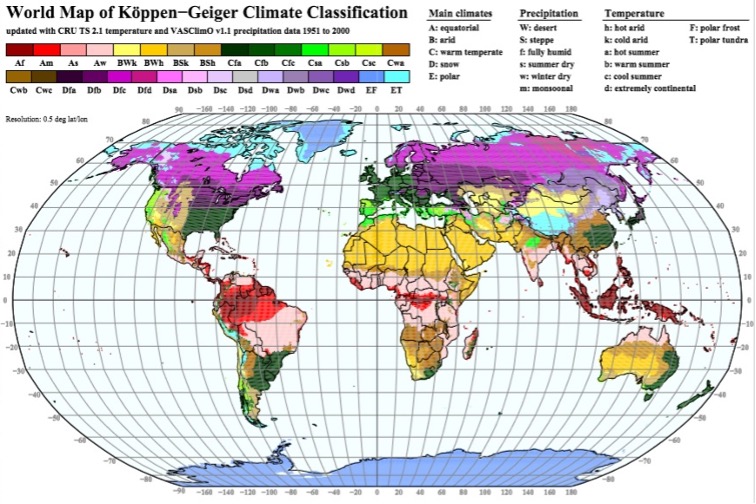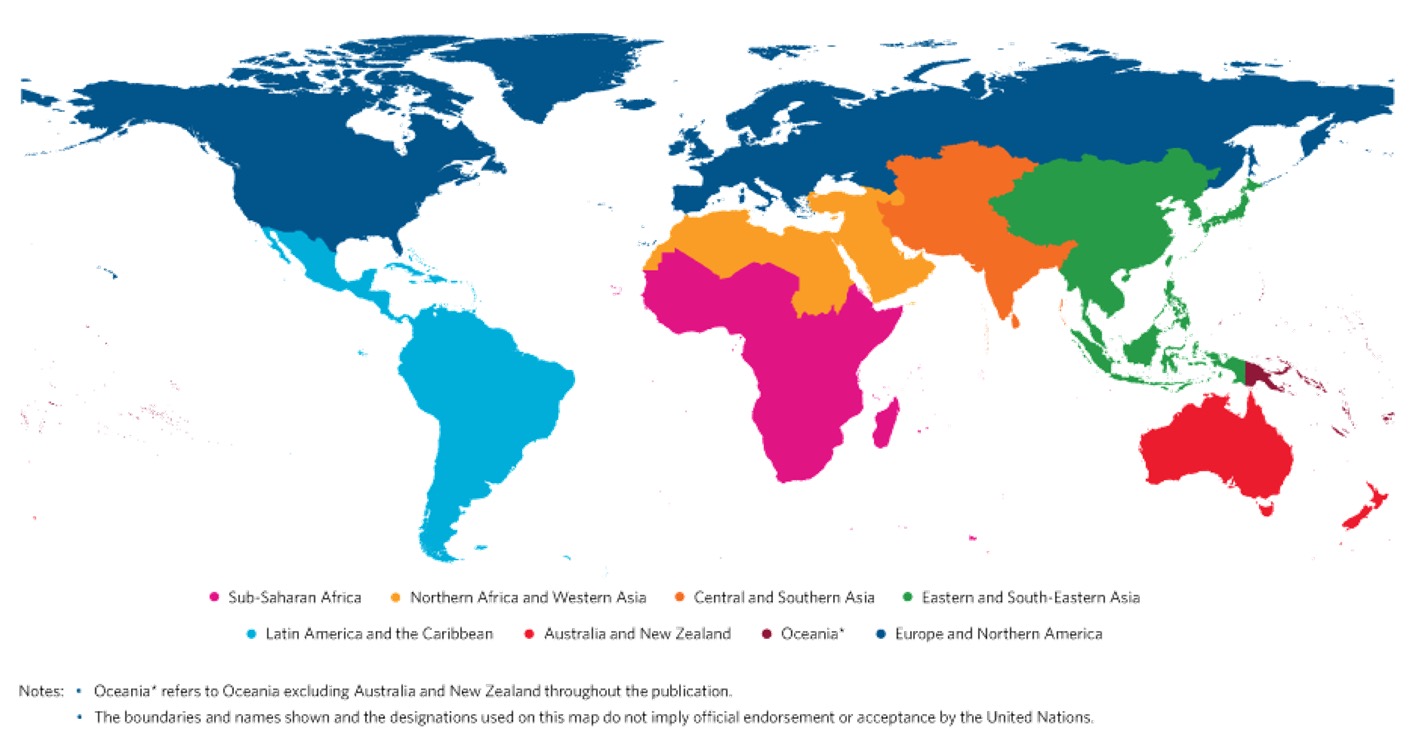Elizabeth G. Boulton, PhD
An entangled security approach to international relations and multilateralism could consider a shift to ecomultilateralism, whereby partnerships and cooperative activities orientate around local ecological and climatic features. This would facilitate regional disaster response and planetary security tasks by which various species, fish, flora, and fauna cross human-derived national or state borders. Pending expert consultation, some options to consider are terrestrial ecoregions, climate zones, and United Nations Sustainable Development Goals (SDG) regional groupings. There are additional options not pictured here, such as Jürgen Schultz’s nine ecozones categories or considering freshwater resources.1
Figure E-1. Terrestrial ecoregions

Although a terrestrial approach excludes freshwater and marine ecosystems, it still provides useful coherence by simplifying some 867 “units” to 14 biomes and 8 biogeographic regions.
Source: David M. Olson et al., “Terrestrial Ecoregions of the World: A New Map of Life on Earth,” BioScience 51, no. 11 (November 2001): 933–38, https://doi.org/10.1641/0006-3568(2001)0512.0.CO;2.
Figure E-2. Climate zones

Used by the World Meteorological Organization, climate zones may aid disaster response planning.
Source: Markus Kottek et al., “World Map of the Köppen-Geiger Climate Classification Updated,” Meteorologische Zeitschrift 15, no. 3 (2006): 259–63 https://doi.org/10.1127/0941-2948/2006/0130.
Figure E-3. United Nations Sustainable Development Goals regional groupings

To facilitate human hyper-response, an alternate, pragmatic option could be the eight UN SDG regional groupings.
Source: The Sustainable Development Goals Report 2018 (New York: United Nations, 2018).
Endnote
- See Jürgen Schultz, The Ecozones of the World: The Ecological Divisions of the Geosphere, trans. Bridget Ahnert, 2d ed. (Berlin: Springer, 2005).